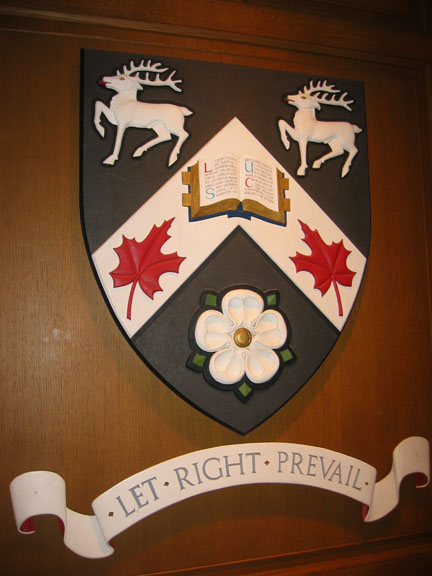The Law Society of Upper Canada will appeal a
hearing panel decision that fully exonerated two Torys LLP lawyers in a conflict-of-interest case that dragged on for eight years.

The allegations relate to the work lawyers Darren Sukonick and Beth DeMerchant did in the sale of the Hollinger group of companies between 2000 and 2003. But in October 2013, a law society hearing panel said it had no evidence to find the pair guilty of professional misconduct.
Following the ruling, the law society took heat from the profession for continuing to prosecute the case. But according to the law society’s
notice of appeal, the hearing panel “failed to appreciate material evidence tendered into the record” showing conflict of interest and the failure of the lawyers to obtain informed consent from their clients.
The appeal notice also claims the panel erred in its interpretation of Rule 2.04 and its predecessors; and in its “interpretation of the meaning of conflicting ‘legal’ interests in the context of a commercial transaction.”
DeMerchant, who commented on the matter for the first time, described the personal and professional toll the case has taken on her.
“I am starting my ninth year under the cloud of this case. The appeal will continue to handicap me professionally for most of 2014, which is crushing,” she told
Legal Feeds in a statement.
“The personal toll is immense. It is hard for me to understand the public interest imperative in the appeal. The hearing panel unanimously concluded that we acted entirely in accordance with the Rules of Professional Conduct. The LSUC presented not even one witness to contradict this conclusion and had no client support for its case.”
Sukonick had set aside his practice to focus on the hearing for the last eight years. Following the October ruling, he
told Law Times he was ready to move forward. Now, he says he “cannot imagine how the law society’s prosecutors think this is fair.”
“Five senior lawyers testified on my behalf at the hearing, and the panel that exonerated me included two QC lawyer benchers with over 80 years of legal practice combined. The panel also found that our practice was consistent with that of our corporate counsel peers,” he said in a statement to Legal Feeds.
“By appealing, the law society is effectively saying that all of those lawyers were wrong, but I should have known better. Through this ill-conceived appeal, the law society will have sidelined my career for almost as many years as I spent practising law.
“I cannot imagine how the law society’s prosecutors think this is fair.”
In an endorsement earlier this week, law society tribunal chair David Wright emphasized the need to ensure the appeals will be heard in a timely manner because of the impact of the drawn-out case on the two lawyers.
“In my view it is incumbent that resources be devoted to ensuring that the appeals can be heard and concluded in both a fair and expeditious manner,” said Wright, who gave the law society until May to perfect its appeal.
In the Ocotber ruling — for what is reportedly the longest disciplinary hearing at the law society — the hearing panel described an entire lack of evidence in case.
“The [lawyers’] clients are all considered to be sophisticated and before there is a finding of conflict of interest, there should be some evidence that counsel preferred the legal interests of one or more clients to the detriment of another. There was none,” hearing panel chair William Simpson wrote.
The law society would offer no further comment beyond its notice of appeal.

 The allegations relate to the work lawyers Darren Sukonick and Beth DeMerchant did in the sale of the Hollinger group of companies between 2000 and 2003. But in October 2013, a law society hearing panel said it had no evidence to find the pair guilty of professional misconduct.
The allegations relate to the work lawyers Darren Sukonick and Beth DeMerchant did in the sale of the Hollinger group of companies between 2000 and 2003. But in October 2013, a law society hearing panel said it had no evidence to find the pair guilty of professional misconduct.